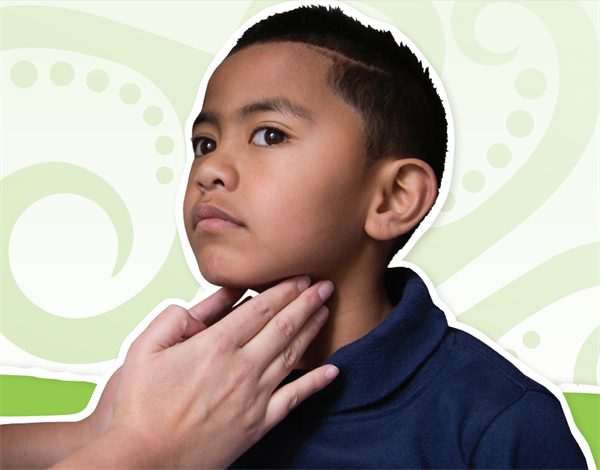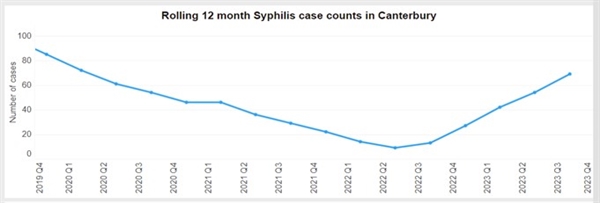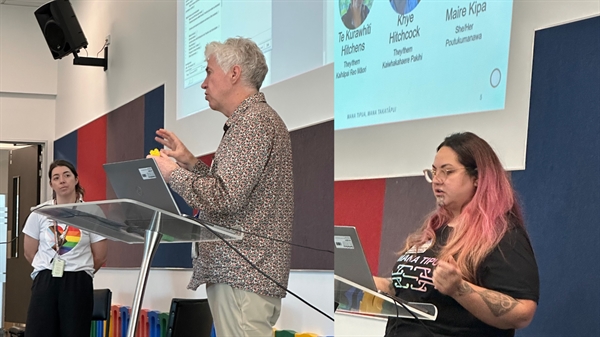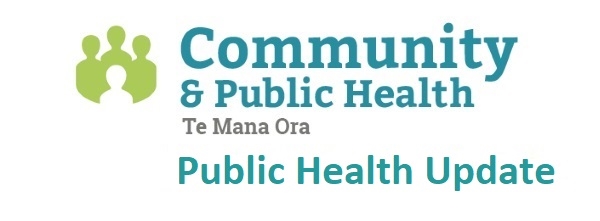July 2024
Rheumatic fever transfers

A national register of rheumatic fever patients is under development. In the meantime, public health services maintain regional registers to ensure consistent long-term treatment. Recently several newly-relocated patients have missed antibiotic treatment because their details were not transferred to their destination’s rheumatic fever register.
Please advise Te Mana Ora of rheumatic fever patients transferring either in or out of your practice so that our public health staff can ensure regional registers are updated and ongoing treatment is provided.
Long-term antibiotic prophylaxis of rheumatic fever can prevent recurrent attacks, reducing the risk of severe rheumatic heart disease. Regular long-term follow-up of confirmed cases is fully funded in primary care.
Cytomegalovirus Awareness

Angela Deken and Melanie Souter
June was cytomegalovirus awareness month; we are providing you with a July reminder.
Cytomegalovirus (CMV) is a herpes virus affecting between 0.5 and 2.5 percent of all live births, and is the most common cause of newborn disability but the least discussed with pregnant people. CMV is transmitted in body fluids, most commonly saliva.
Newborn Hearing Screening Programme Coordinator Angela Deken says having children at preschool is one of the common ways CMV is spread. CMV infection in a healthy adult or child may cause flu-like symptoms, or symptoms may be minimal. Around 60 percent of pregnant people will have been exposed to CMV prior to pregnancy and have some natural immunity. But for the 40 percent who are not immune, infection during pregnancy may pass to the baby and lead to serious problems that include sensorineural hearing loss, visual problems, motor and physical impairments, seizures, autism, learning disabilities, cerebral palsy, and even stillbirth. The earlier in pregnancy CMV transmission occurs, the more risk there is to the baby.
Otolaryngology (ENT) consultant Melanie Souter says the majority of babies born with congenital CMV have few or no symptoms, but problems can still develop as they grow. Ten percent of babies infected in utero show signs and symptoms of severe generalised infection and are likely to have long term disabilities.
“Research shows 80 percent of CMV can be prevented with education about hygiene practices, so public awareness and health professional education is very important.”
“All healthcare workers must do what they can to educate pregnant people and other professionals on ways to stop CMV transmission and learn about the impacts of this virus and how to protect against it.” For pregnant people in high risk occupations for CMV such as teachers and child care workers consider taking blood tests as early as possible to ascertain their CMV status.
Find more information about CMV and prevention here.
Syphilis (Pākewakewa) – yes it’s still a thing.

STI Quarterly dashboard (esr.cri.nz)
Syphilis is a highly infectious bacterial infection transmitted during any type of sex (oral, anal or vaginal) or even just close skin-to-skin, intimate, or genital contact. Syphilis numbers in Canterbury have increased significantly over the last two years (see graph above).
Dr Simon Dalton, Clinical Director Infection Management Service (formerly Infectious Diseases Department), says “Recently it feels like syphilis has been everywhere, we’ve seen it in young people, pregnant women and married couples. Treatment is straightforward, however the key step is to do the test!”.
Clinical Director of Sexual Health Services, Dr Edward Coughlan, says, “At the Christchurch Sexual Health Service alone, we saw 54 cases of syphilis last year mostly in the MSM population although increasing numbers in women, and men who have sex with women.”
The Sexual Health Service recommends including serology with any sexual health check-up, or to accompany swabs at cervical screening time. Repeat syphilis serology in the third trimester of pregnancy, to help detect the 1 in 4 congenital syphilis cases whose mother had a normal first trimester screen.
Secondary syphilis is easy to miss but can easily be diagnosed with a simple blood test. However it can take up to 90 days for serology to become positive, so a person with a syphilitic chancre may not have a positive blood test; seek sexual health advice and consider repeat serology.
Also consider testing in patients with a rash (particularly on palms or soles of the feet), or mucosal (oral/genital) lesions, chronic symptoms with rash, hair loss, or uveitis.
For further information, including syphilis treatment advice, see Community HealthPathways
Sex and Consequences

On 4 July 2024, over 150 people from all around Aotearoa attended the SEX & CONSEQUENCES seminar in Ōtautahi Christchurch.
Presenters for the afternoon included:
Dr Edward Coughlan (Clinical Director, Christchurch Sexual Health Service) presented an Update on PEP, PrEP and Doxy-PEP; his colleague Dr Heather Young (Sexual Health Physician) outlined the Potentials and Pitfalls of Self-testing Technology.
Victoria Riddiford (Counsellor at the Burnett Foundation Aotearoa) took us on a journey how to better Understand Compulsive Sexual Behaviour.
Following kai / light afternoon tea, Ben Harris (Microbiologist, NZ Infection Prevention & Control Consultancy) fascinated us with Scabies, Coming to a Skin Near You.
Red Ngaia-Setu and his team from YCD Fresh Outreach Project shared their mahi / work with us at Igloo, a space for youth at the Christchurch Bus Exchange; and to close, Kahu Tumai (she/her/ia from Mana Tipua, Mana Takatāpui) shared her insights about young irawhiti/trans people’s experience navigating gender affirming care, health and wellbeing.
You can watch these presentations at your leisure here.
If you’d like to receive an invitation to the next Sex & Consequences seminar, please contact ann.vanschevensteen@cdhb.health.nz
|





